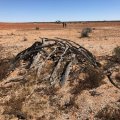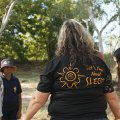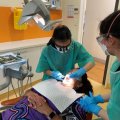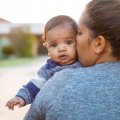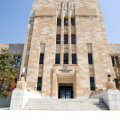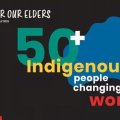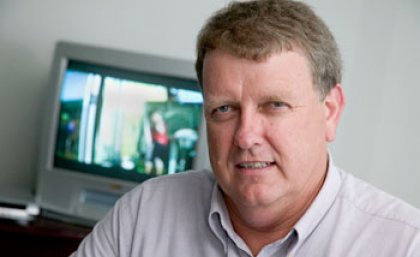
Minister for Child Safety, the Honourable Phil Reeves, has launched a new initiative designed to strengthen and nurture Indigenous families.
Indigenous child protection service workers will be trained to deliver UQ’s Triple P – Positive Parenting Program in Queensland communities, thanks to a partnership between the Queensland Aboriginal and Torres Strait Islander Child Protection Peak (QATSICPP) and The University of Queensland.
The scheme was launched at 11am on Wednesday, October 13 at QATSICPP, 44 Station Road, Yeerongpilly.
The scheme is funded by the Queensland Government.
Initially, 60 workers from the State’s 11 Aboriginal and Torres Strait Islander Family Support Services will be trained to deliver the program.
William Hayward, the QATSICPP Member Service Support Officer coordinating the initiative, said the collaboration heralded a new approach to Indigenous social services.
Mr Hayward said instead of trying to educate mainstream parenting workers about cultural knowledge and issues, Indigenous parent support workers, already sensitive to cultural issues, would be gaining internationally-recognised professional qualifications in Triple P.
“Our Aboriginal and Torres Strait Islander family support professionals will deliver Triple P’s Positive Parenting Program from a culturally-acceptable and safe perspective ensuring the best possible engagement and positive behaviour change for our communities’ children and families,” Mr Hayward said.
“The collaborative partnership between Triple P, The University of Queensland and the Queensland Aboriginal and Torres Strait Islander Child Protection Peak is a testament to how mainstream organisations can build the capacity and resources of Aboriginal and Torres Strait Islander service delivery by directly working in partnership with Indigenous organisations and professionals.”
There is an Indigenous Triple P program, which was developed with the support of many Queensland Indigenous elders, professionals and parents.
University of Queensland researchers will seek feedback from the newly-trained Indigenous workers and monitor the outcome for parents and children, and continue to tailor the program and address cultural sensitivities.
Workers will be trained to deliver Indigenous Triple P in a number of ways – brief, one-to-one “Primary Care” consultations, the broader eight-week Group Triple P and a more intensive and private 10-week program.
Triple P’s Professor Matt Sanders, who is Director of the Parenting and Family Support Centre at UQ, said with Triple P recognised as one of the most rigorously-researched parenting programs in the world, it was important to continue to evaluate and tailor it to the needs of Indigenous parents.
“The Parenting and Family Support Centre is committed to pursuing research and program development to support workers in indigenous communities and provide better futures for Indigenous families and children,” Professor Sanders said.
“By supporting parents and building their skills and confidence we do have the opportunity to change lives.
“We reduce children’s behavioural and emotional problems. We build strong family relationships and help reduce mental health issues, and we can help prevent family violence."
Media:
The University of Queensland/ Triple P – Positive Parenting Program
Dr Karen Turner: 3365 7306 / 0408 007 580
Queensland Aboriginal and Torres Strait Islander Child Protection Peak
Will Hayward: 3362 9644


